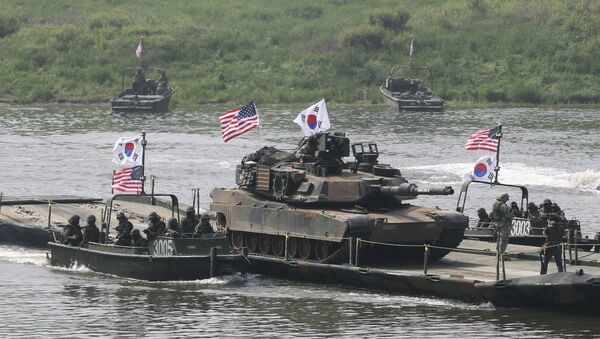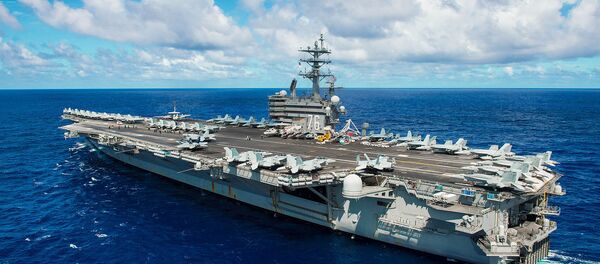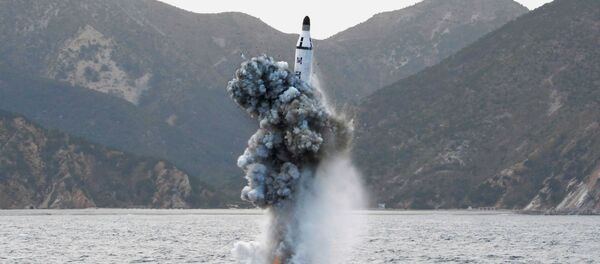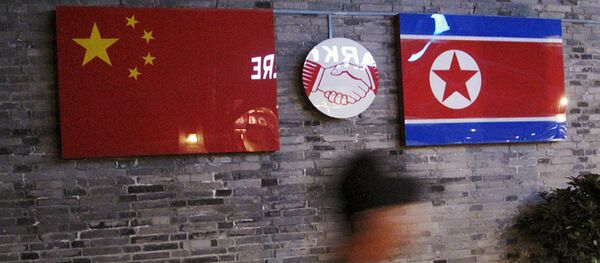As Pyongyang faces harsh new sanctions for its recent nuclear and ballistic missile tests, Seoul has repeatedly called on the US to boost its military presence on the peninsula. The two allies have already formalized plans for the installation of a Terminal High Altitude Area Defense (THAAD) system.
But more is evidently better, and the South Korean defense industry is hoping to seize the opportunity to increase cooperation with American firms.
"As you know, just 40 years ago, Korea had nothing [in defense manufacturing]. But thanks to the help of the US we have made much progress," Kim Young Hoo, executive vice chairman of Korea Defense Industry Association (KDIA), told Defense News.
"Circumstances have been changing. Korea has grown a lot, developed technology. We now need a new cooperation model."
In the past, South Korea received defensive equipment from the United States for assembly.
"That model worked well. But we have new needs to develop together."
While Hoo says that South Korea’s domestic industry already produces "conventional weapon systems," the country needs "more advanced technology."
"We are looking for a cooperation model from the US, since we have a [requirement] for high tech capabilities," he said.
"At the same time, Korea is in a tense situation with North Korea. We’re looking to [serve as a] supplier for developing new products with the US. We expect that would strengthen the safety and security of Northeast Asia and the Korean Peninsula."
In August, North Korea test-fired a submarine-launched (SLBM) 300 miles (500km) in the direction of Japan with the country’s leader Kim Jong-Un saying that the weapon had the range to strike the US mainland – an assertion that was widely mocked by Western defense analysts who were nonetheless concerned by the progress made by Pyongyang.
North Korea has also successfully completed a string of nuclear tests in recent months including its most powerful one on September 9 when Pyongyang detonated a miniaturized nuclear bomb raising the stakes on the Korean peninsula and marking a major milestone towards Kim Jong-Un’s ability to engage in a full-throat nuclear attack.
"We’ve been very cooperative with the US defense industry," Hoo said. "But there are more opportunities. We can grow together, achieving a mutual interest."





